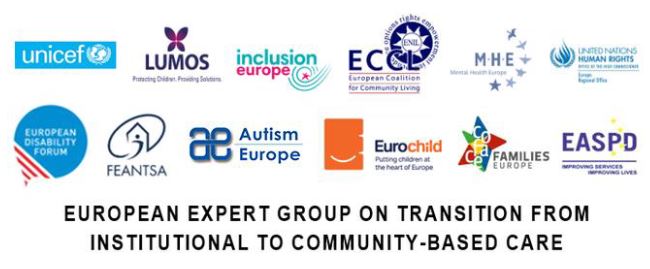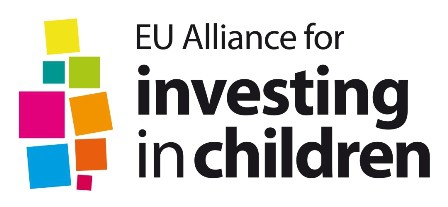
Even before the pandemic, approximately 1 in 4 children were growing up at risk of poverty and social exclusion across the European Union (EU). The EU institutions have already taken significant steps towards tackling this issue, notably through the recently published EU Strategy on the Rights of the Child, the European Pillar of Social Rights Action Plan and the European Commission proposal for a Council Recommendation establishing the Child Guarantee.
The European Parliament, the Intergroup on Children’s Rights and the EU Alliance for Investing in Children[1] are now calling on the Council of the EU and its Member States to be ambitious in the implementation the European Pillar of Social Rights, to adopt the Child Guarantee Council Recommendation as a matter of priority, and to ensure that the Child Guarantee starts being implemented six months from the adoption of the Recommendation.
This manifesto calls on EU Member States to:
- Develop comprehensive Child Guarantee Action Plans that will be regularly reviewed.
In these Action Plans, EU Member States should provide a comprehensive overview of the measures taken to tackle child and family poverty and break the intergenerational cycle of disadvantage. Member States should outline the groups of children in need to be prioritised in their responses, taking into consideration their specific vulnerabilities, transparent indication of the use of EU and national budgets, and a timeline of the proposed activities. Member States should set national targets and sub-targets related to child poverty reduction and social inclusion, and include a monitoring and evaluation framework that will take into account the EU and country-specific indicators to measure the progress of the Child Guarantee implementation.
The Action Plans should be reviewed regularly in consultation with relevant stakeholders. EU Member States should have the possibility to update the plans along the way, according to their progress and potential new priorities.
- Set ambitious national targets to halve child poverty by 2030 and make sure that all children are counted.
For the first time in the EU’s history, the European Commission has set an EU poverty target to lift at least 5 million children out of poverty by 2030. Although a significant step towards child poverty reduction, this target is not aligned with and not as ambitious as the UN poverty reduction target that aims to end extreme poverty and halve poverty in all its forms by 2030.
Even before the COVID-19 pandemic, 18 million children in the EU were growing up at risk of poverty and social exclusion. Considering that this already unacceptable figure will increase due to the disastrous socio-economic consequences of the pandemic, EU Member States should aim at ensuring that at least 9 million children are lifted out of poverty by 2030. This can be achieved by setting ambitious national targets and disaggregated sub-targets on child poverty reduction as well as through the gearing of EU policies and better targeting of EU funds.
- Ensure the meaningful participation of children, of relevant multi-sectoral stakeholders – such as local communities and civil society organisations – as well as of parents and carers in the design, implementation, monitoring and evaluation of the Child Guarantee Council Recommendation.
To ensure meaningful and rights-based participation, EU Member States must put in place accessible mechanisms that promote children’s participation in decision-making processes that affects their lives and, in particular, in relation to the fulfillment of the Child Guarantee, including outreach measures to ensure the voice of children in need is taken into account. These mechanisms must be informed by available good practices and embedded or sustained across all relevant departments and in the organisational environment of service providers. Monitoring and evaluating progress in child participation should be integrated into the monitoring and evaluation framework of the Child Guarantee Action Plans.
- Ensure that the Child Guarantee properly feeds into the European Semester process and the country-specific recommendations.
EU Member States should ensure that the Child Guarantee triggers concrete reforms within the national and local frameworks. Its implementation must be monitored by the well-established policy coordination framework of the European Semester and the revised Social Scoreboard set out in the European Pillar of Social Rights Action Plan.
The European Commission and the Social Protection Committee should ensure that the headline and secondary indicators in the revised Social Scoreboard relevant for the EU Child Guarantee are systematically disaggregated by age, gender, geography, country of birth, and ethnic background. They should also ensure the indicators take into account the groups of children in need identified by the Child Guarantee, as well as the territorial dimension of the problem.
In this regard, it is also essential that the EU provides financial assistance to the EU Member States, EUROSTAT and other relevant organisations for data collection and data systems strengthening, as few countries have reliable and consistent data on child poverty and social exclusion, and the accessibility and quality of key Child Guarantee services for children in need.
- Ensure a more comprehensive approach to the services provided under the Child Guarantee in the areas of nutrition and leisure activities.
The Recommendation should emphasise the necessity for Member States to set up a comprehensive framework regarding children’s access to healthy nutrition, also outside of the school system. Parents should be supported to provide nutritious meals for their children through in-kind or financial support. Where needed, direct distribution of free meals to children and their families should also be ensured.
Not all Member States have the capacity or the necessary infrastructures to ensure leisure and cultural activities via the formal school system. Member States should include in the Child Guarantee Recommendation children’s equal access to sports, leisure and cultural activities organised outside of the school system and school curricula.
- Ensure coherence and complementarity between the Child Guarantee and the EU Strategy on the Rights of the Child
Member States should ensure coherence and complementarity between the comprehensive framework offered by the EU Strategy on the Rights of the Child and the Child Guarantee Council Recommendation.
EU Member States must take a bold stance against all forms of discrimination on all grounds, including intersectional discrimination, and concerning all groups of children. Segregation in housing, education, healthcare, and other aspects of life also breeds a sectioned view of society, which fuels inequalities and poverty. Preventive, targeted and proactive measures are needed to alter public perceptions and prevalent misrepresentations.
The Child Guarantee should also not present the placement of children in institutional care as a last resort. EU Member States should invest in child protection, high quality support services starting from early childhood interventions to support families and prevent separation, and the provision of quality community- and family-based alternative care. Adequate services should be provided to prepare children leaving care in order to support their independent living and social integration, including for unaccompanied migrant children.
The placement of children in emergency shelters should also be avoided. To prevent and address homelessness, EU Member States should provide stable and adequate housing for children and their families, accompanied by social support services.
Notes
[1] The EU Alliance for Investing in Children has been advocating for a multidimensional, rights-based approach to tackling child poverty and promoting child well-being since 2014. This statement was endorsed by the following partner organisations of the EU Alliance for Investing in Children: https://www.alliance4investinginchildren.eu/
[2] European Expert Group on the transition from institutional to community-based care www.deinstitutionalisation.com
This Manifesto is endorsed by the European Expert Group on the transition from institutional to community-based care (EEG)

Initiators Members of the European Parliament:
Manuel Pizarro
Caterina Chinnici, Co-Chair of the Intergroup on Children’s Rights
Hilde Vautmans, Co-Chair of the Intergroup on Children’s Rights
Dragos Pislaru, Vice-Chair of the Intergroup on Children’s Rights, Renew Europe Spokesperson on the European Child Guarantee
Antonio Lopez Isturiz, Vice-Chair of the Intergroup on Children’s Rights, EPP Secretary General
Milan Brglez, Vice-Chair of the Intergroup on Children’s Rights
Javier Moreno Sanchez, Vice-Chair of the Intergroup on Children’s Rights
Laurence Farreng, Vice-Chair of the Intergroup on Children’s Rights
Brando Benifei, S&D Spokesperson on the Child Guarantee
Members of the European Parliament endorsing the Manifesto
Agius Saliba Alex
Aguilera Clara
Alametsä Alviina
Alieva-Veli Atidzhe
Andrieu Eric
Angel Marc
Arimont Pascal
Attila Ara-Kovács
Avram Carmen-Gabriela
Balt Marek
Barrena Pernando
Beghin Tiziana
Benifei Brando
Bergkvist Erik
Biedroń Robert
Bilbao Barandica Izaskun
Bischoff Gabriele
Borzan Biljana
Brglez Milan
Bricmont Saskia
Brunet Sylvie
Bullmann Udo
Calenda Carlo
Carvalhais Isabel
Carvalho Maria
Castaldo Fabio Massimo
Cerdas Sara
Chaibi Leila
Chastel Olivier
Chinnici Caterina
Ciuhodaru Tudor
Comín Antoni
Cretu Corina
Csaba Molnár
Cutajar Josianne
D’amato Rosa
Donath Anna
Dura Ferrandis Estrella
Ďuriš Nicholsonová Lucia
Engerer Cyrus
Ernst Cornelia
Evi Eleonora
Fajon Tanja
Farreng Laurence
Fernandes, José Manuel
Fernandez Alvarez Jonas
Ferragut Rosa Estaras
Ferrara Laura
Franssen Cindy
Franz Romeo
Fritzon Heléne
Furore Mario
Galvez Lina
Garcia Del Blanco Ibán
Gardiazábal Rubial Eider
Gemma Chiara Maria
Georgiou Giorgos
Glucksmann Raphaël
Grapini Maria
Gregoriu Giorgios
Gualmini Elisabetta
Guetta Bernard
Guteland Jytte
Guillaume Sylvie
Gusmão José
Hajsel Robert
Hansen Christophe
Heide Hannes
Herzberger-Fofana Pierrette
Homs Ginel Alicia
Huhtasaari Laura
Incir Evin
Jerkovic Romana
Jongerius Agnes
Joveva Irena
Kaili Eva
Kaljurand Marina
Kammerevert Petra
Klára Dobrev,
Kohut Lukasz
Kumpula-Natri Miapetra
Kyuchyuk Ilhan
Lalucq Aurore
Lamberts Philippe
Langensiepen Katrin
Larrouturou Pierre
Leitão-Marques Maria-Manuel
Liberadzki Bogusław
Lopez Javier
Lopez Isturiz Antonio
Luena César
Majorino Pierfrancesco
Maldeikiene Aušra
Maldonado López Adriana
Manuela Ripa
Marques Margarida
Marques Pedro
Matias Marisa
Matić Predrag Fred
Matthieu Sara
Mavrides Costas
Maxová Radka
Mebarek Nora
Melchior Karen
Metsola Roberta
Metz Tilly
Miller Leszek
Moreno Sánchez Javier
Moretti Alessandra
Motreanu Dan-Stefan
Mozdzanowska Andzelika Anna
Negrescu Victor
Neuser Norbert
Olekas Juozas
Omarjee Younous
Papadimoulis Dimitrios
Pelletier Anne-Sophie
Picula Tonino
Pineda Manu
Pislaru Dragos
Pollák Peter
Ponsatí Clara
Puigdemont Carles
Ramos Rodriguez Maria Soraya
Rego Sira
Reuten Thijs
Riba I Giner Diana
Ries Frédérique
Rodríguez Palop Eugenia
Ropé Bronis
Samira Rafaela
Sándor Rónai
Santos Isabel
Schieder Andreas
Silva Pereira, Pedro
Smeriglio Massimiliano
Solé Jordi
Tang Paul
Tax Vera
Toia Patrizia
Tomac Eugen
Ujhelyi István
Urtasun Ernest
Van Brempt Kathleen
Vautmans Hilde
Vedrenne Marie-Pierre
Villanueva Ruiz Idoia
Vitanov Petar
Vollath Bettina
Walsh Maria
Wolters Lara
Yenbou Salima
Zorrinho Carlos
Contacts
From the European Parliament:
- Rui Carlos Morais Lage, lage@europarl.europa.eu, Assistant to MEP Manuel Pizzaro
- Emilio Puccio, emilio.puccio@europarl.europa.eu, Coordinator of the European Parliament’s Intergroup on Children’s Rights
From the EU Alliance in Investing in Children:
- Katerina Nanou, Katerina.nanou@savethechildren.org Senior Advocacy Advisor, Child Poverty and Children in Alterative Care, Save the Children
- Enrico Tormen, Enrico.tormen@eurochild.org, EU Affairs Officer, Eurochild
